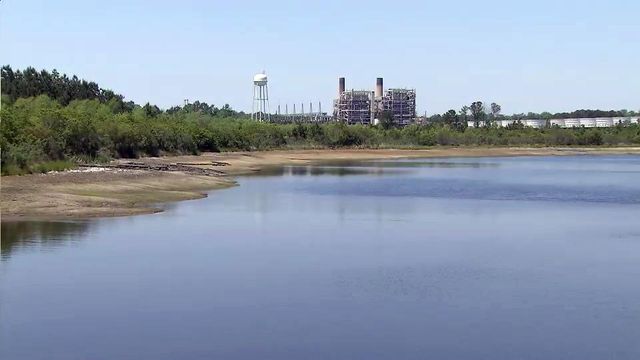Research links contamination to leaking coal ash ponds
New research by Duke University scientists indicates that unlined coal ash basins throughout the Southeast have contaminated nearby surface and groundwater with toxic elements -- and that closing the ponds doesn't necessarily solve the problem.
Posted — UpdatedResearchers examined coal ash sites in five states, including North Carolina, comparing background levels of such contaminants as arsenic and selenium with those in monitoring wells and surface water. Each of the 21 sites showed higher concentrations of common coal ash contaminants, and nearly one-third exceeded U.S. Environmental Protection Agency standards for drinking water and aquatic life.
"In all cases, we saw very striking evidence for leaking of coal ash ponds," study author Avner Vengosh, a professor of geochemistry and water quality in Duke’s Nicholas School of the Environment, said.
Testing showed impacts to surface and groundwater even at closed sites that weren't receiving new coal ash, the byproduct of coal-fired energy production. Vengosh said this evidence – showing damage has already been done – is missing from the conversation about how to deal with coal ash.
"We have already contaminants that are in the subsurface in the groundwater that are moving toward the regional drinking water aquifer," Vengosh said. "So, I think the first stage is recognizing we have a problem, and we have to address that."
Duke Energy spokeswoman Dawn Santoianni said Friday that, although company officials hadn't read the full study, it didn't appear to offer anything new.
Matthew Starr, Upper Neuse Riverkeeper, said he wasn't surprised by the findings.
"We’ve looked at scientific literature, we’ve looked at the groundwater monitoring wells that are around all of these coal ash ponds, on the banks of rivers throughout the entire state," Starr said. "For more evidence to come out that says, 'This is related to coal ash, to coal combustion residuals,' is no shock to us."
Despite the paper's findings, Santoianni said surface water "remains well protected based on our permits," which legally allows some discharge from the ponds.
But the work of Vengosh and his colleagues specifically examined the role of leaks on surrounding contamination – over and above what results from permitted discharge.
"The answer is yes, we do see evidence for leaking of the coal ash pond into the groundwater, which is different from the outflow from the pond," Vengosh said.
Duke Energy officials have noted that "every earthen impoundment" leaks, which they say underscores the need to permanently close down the ponds.
But how to do that is an open question.
Environmental groups have pushed for complete excavation and relocation of the ash to lined landfills that would prevent further contamination. That's the strategy state regulators currently plan to enforce, although they've asked North Carolina lawmakers for the ability to review the plan next year if Duke Energy takes action to fix dams and provide water to nearby residents.
Such a review would leave open the potential for "cap-in-place" at some basins, draining the pond water and covering dry ash with an impermeable barrier. Duke Energy has argued cap-in-place will be more cost-effective and would still protect the environment – a claim environmentalists have dismissed.
"Under any closure approach, we will monitor groundwater for many years and can take additional steps to enhance it, if needed, based on those results," Santoianni said. "Arbitrarily excavating and relocating ash is not the best solution to protect groundwater since it causes a host of other environmental and community impacts."
Vengosh said that, given the contamination already present, better monitoring will be a crucial part of cleanup. His team is already working on additional research to figure out how nearby drinking water wells have been impacted by the basins, which Friday's paper did not specifically address.
Amid competing claims from environmentalists and industry, Vengosh said he'd like to see science play a much larger role in the discussions about coal ash – and how to restore decades of contamination from the long-ignored dumps.
"I think much more resources and much more efforts should be attempted to include scientists in this conversation and actually have objective data, which we're trying to do at Duke University, to understand what's going on," Vengosh said.
Related Topics
• Credits
Copyright 2024 by Capitol Broadcasting Company. All rights reserved. This material may not be published, broadcast, rewritten or redistributed.





